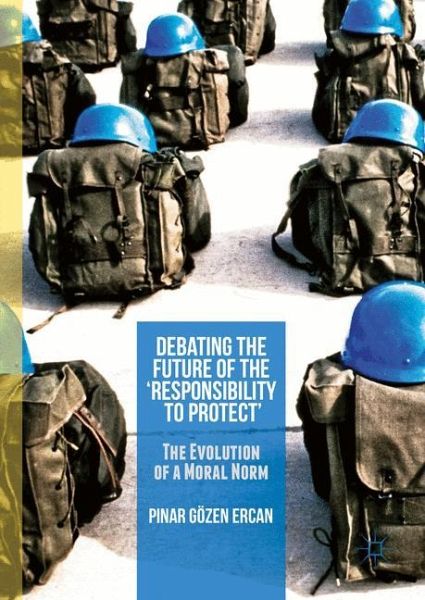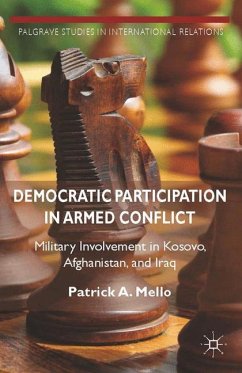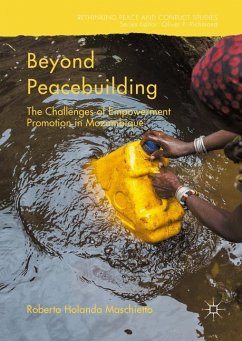
Debating the Future of the 'Responsibility to Protect'
The Evolution of a Moral Norm

PAYBACK Punkte
19 °P sammeln!
This study examines the relevance of the Responsibility to Protect (R2P) in responding to humanitarian challenges across the world. In proposing a number of revisionist alternatives, Ercan proposes a way forward for R2P, particularly regarding its Second and Third Pillars. Despite the debate shifting from a right to intervene towards a responsibility to protect, the conceptual and systemic limitations imposed on R2P via its institutionalisation have hampered its ability to consolidate change. In light of this, Ercan argues that R2P cannot make a positive contribution towards changing the inter...
This study examines the relevance of the Responsibility to Protect (R2P) in responding to humanitarian challenges across the world. In proposing a number of revisionist alternatives, Ercan proposes a way forward for R2P, particularly regarding its Second and Third Pillars. Despite the debate shifting from a right to intervene towards a responsibility to protect, the conceptual and systemic limitations imposed on R2P via its institutionalisation have hampered its ability to consolidate change. In light of this, Ercan argues that R2P cannot make a positive contribution towards changing the international system without first being equipped with new powers.












